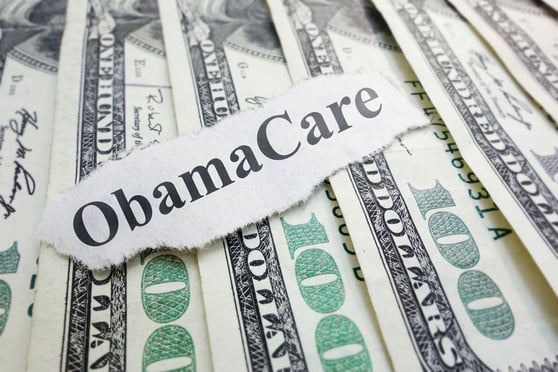In the absence of new federal policies to tame break-the-bank drug prices, Massachusetts’state Medicaid program hopes to road-test an idea both radical andmarket-driven. It wants the power to negotiatediscounts for the drugs it purchases and to exclude drugs withlimited treatment value.
|“This is a serious demonstration proposal,” said Sara Rosenbaum,a health policy expert and professor at George WashingtonUniversity. “They’re not simply using [this idea] as an excuse tocut Medicaid. They’re trying to take a step toward efficiency.”
|If the Department of Health and Human Services approves the BayState’s plan, others will likely take similar action. According tothe most recent federal data, Medicaid spending on prescriptiondrugs increased about 25 percent in 2014 and nearly 14 percent in2015.
|Currently, state Medicaid programs are required to cover almostall drugs that have received Food and Drug Administration approval,including multiple drugs from different manufacturers used for thesame purpose and in the same category. In exchange, manufacturersmust discount those drugs — typically based on a set percentage ofthe list price, specified by federal law. The idea is Medicaid’s vulnerablebeneficiaries get medications they need and the state doesn’t gobroke paying for them.
|As drug prices soar, states say, those fractional rebates nolonger suffice to defray the burden of rising costs.
|Take, for instance, the hepatitis C cures released in recentyears. The price tags come in tens or even hundreds of thousands ofdollars and — even after rebates — have cost Medicaid billions. In turn, some states tried to restrictaccess, so only the sickest patients could get the drugs.Advocates filed suit in response and won based on the argument that such limitsviolated Medicaid’s statutory drug benefit.
|State officials contend that the current Medicaid rebate systemmay encourage drug price inflation, since a set percentage of ahigher price yields a greater profit. Also, the legal requirementto cover most prescriptions leaves little wiggle room to negotiatea better price.
|So, Massachusetts wants to go a different route, requesting afederal exemption known as a Section 1115 waiver, which is meant tolet states test ways of improving Medicaid. It wants to pick whichdrugs it covers based on most beneficiaries’ medical needs andwhich medicines demonstrate the highest rates of costeffectiveness.
|It says it will be able to negotiate better prices as a result,saving public dollars while maintaining patients’ access to neededtherapies.
|The federal Centers for Medicare & Medicaid Services, whichwill ultimately approve or reject Massachusetts’ proposal, has nodeadline for its decision. A Massachusetts spokeswoman saidofficials are pushing for an answer by year’s end.
|Already, though, the pitch is turning heads.
||Kaiser HealthNews (KHN) is a national health policy news service. It isan editorially independent program of the Henry J. Kaiser Family Foundation.
|“This is absolutely something a lot of other states are lookingvery closely at,” said Matt Salo, executive director of theNational Association of Medicaid Directors.
|If the request is approved, agreed Jane Horvath, a senior policyfellow at the National Academy for State Health Policy, otherstates would follow suit “in about five minutes.”
|Critics worry this change could make it harder for low-incomepeople to get needed medications, without necessarily providingthem an alternative. In the past decade, though, it has becomecommonplace for people with commercial insurance to have limiteddrug choices — meaning only those medicines listed on a plan’sformulary are covered.
|The Pharmaceutical Research and Manufacturers of America(PhRMA), the drug industry’s trade group, has already lodged itsdispleasure, saying this would limit consumer access and isunnecessary on top of the rebates Medicaid programs receive.
|“The pharmaceutical industry has a reputation for beinglitigious. This would be a big deal for them,” said Andy Schneider,a Medicaid expert at Georgetown University, who worked at CMS underthe Obama administration. If CMS approves the waiver, analystssaid, the industry would likely sue, though PhRMA wouldn’t commenton potential legal action.
|But federal approval is no sure thing.
|On one hand, the Trump administration has encouraged states totest changes that would run Medicaid more like a private insuranceplan. Through that frame, Massachusetts’ approach seems a logicalfit. Though a formal strategy has not been released, PresidentDonald Trump has said his administration intends to bring drug prices “waydown.”
|On the other hand, analysts said, CMS’ decision-making regardingwaivers has proven unpredictable. The agency declined to commentbeyond confirming it was reviewing Massachusetts’ request.
|It’s clear why states are interested. On average, between 25 and30 percent of state budgets go to Medicaid, and program directorsacross the country identify rising drug costs as a major contributor to spending increases,according to a recent survey by the Kaiser Family Foundation. (Kaiser Health News is an editoriallyindependent program of the foundation.)
|In Massachusetts, Medicaid accounts for about 40 percent of thestate’s budget. Prescription-drug spending has in the past sevenyears more than doubled — from about $917 million in 2010 to about$1.94 billion last year, according to figures provided by the statehealth department.
|If the waiver is approved, the state’s Medicaid program wouldcover at least one medication per therapeutic class — that is, perspecific medical need.
|It also would have an appeals process for people to get theiroff-formulary drugs covered, if they’re medically necessary.
||Kaiser HealthNews (KHN) is a national health policy news service. It isan editorially independent program of the Henry J. Kaiser Family Foundation.
|Number crunchers say it’s hard to estimate what this would save.It depends on how the state negotiates, how industry responds andwhat the program covers. The potential result is significant,though.
|“You’d have to be foolish not to consider this,” said AmeetSarpatwari, an epidemiologist and lawyer at Harvard Medical School,who studies drug pricing and related legislation.
|But consumer groups worry about Medicaid’s low-incomebeneficiaries, even as they acknowledge that rising drug costs areunsupportable for state budgets.
|“The Medicaid population is different from the commerciallyinsured — they’re more vulnerable and have a lot more going on intheir lives, and are generally poorer. So they have fewer resourcesto try to get the services and prescription drugs they need,” saidSuzanne Curry, associate director of policy and governmentrelations at Health Care For All, a Massachusetts-based advocacygroup.
|Although Massachusetts, a state with a long history ofinnovation, has committed to making sure patients get neededmedicine, “you have to ask what will real-world implementationlooks like,” said Benjamin Sommers, an associate professor ofhealth policy and economics at Harvard’s public health school.Appeals processes, he noted, can be onerous or restrictive.
|And even if Massachusetts receives federal approval, it stillcouldn’t challenge the cost of certain expensive drugs that are theonly offering in their therapeutic class. For instance, Spinraza,which treats the rare but debilitating disease of spinal muscularatrophy, has a price tag of $750,000 for an initial year oftreatment. With no therapeutic equivalent, it would still have tobe covered.
|But states are desperate to push back in new ways and howeverthey can. “We have seen in the past year … drugs that have almostbankrupted state budgets,” Sarpatwari said. “There will be manyother states that will be interested in following this lead.”
|Kaiser HealthNews (KHN) is a national health policy news service. It is aneditorially independent program of the Henry J. Kaiser FamilyFoundation.
Complete your profile to continue reading and get FREE access to BenefitsPRO, part of your ALM digital membership.
Your access to unlimited BenefitsPRO content isn’t changing.
Once you are an ALM digital member, you’ll receive:
- Critical BenefitsPRO information including cutting edge post-reform success strategies, access to educational webcasts and videos, resources from industry leaders, and informative Newsletters.
- Exclusive discounts on ALM, BenefitsPRO magazine and BenefitsPRO.com events
- Access to other award-winning ALM websites including ThinkAdvisor.com and Law.com
Already have an account? Sign In
© 2024 ALM Global, LLC, All Rights Reserved. Request academic re-use from www.copyright.com. All other uses, submit a request to [email protected]. For more information visit Asset & Logo Licensing.








